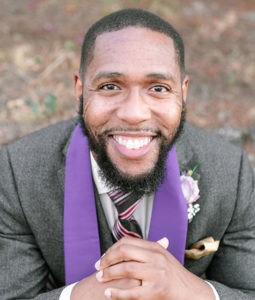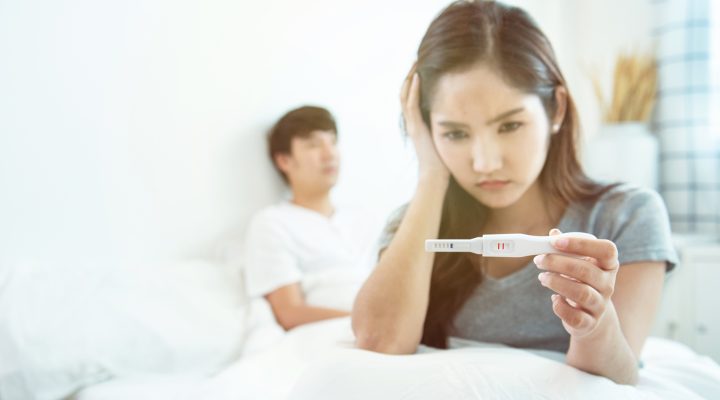The Supreme Court ruling in Dobbs v. Jackson Women’s Health Organization is a tragedy for the health care and reproductive justice of millions of women in America. But it’s not just women who should be concerned about the ravenous effects of fundamentalism and Christian nationalism that have infiltrated our systems of government.
As researchers and advocates suggest, this decision will not stop women from making the decision to get abortions; instead it “will only make them more dangerous” and will have an even harsher impact on poor and racialized groups.
That also will affect men who walk the challenging path of abortion with their spouses or significant others.

Darrell Hamilton
Men who, in conversation with their partners, make the joint decision to terminate a pregnancy after consulting their health care professional. Men whose excitement turns to grief because of challenges with a fetus’s viability or concern about their future child’s quality of life. Or men who are not yet ready to start a family nor want to have children, so they and a partner access abortion care as a responsible option.
Men play a relevant role
A study by the Guttmacher Institute explains: “Women contemplating abortion frequently involve their male partner in the decision, and those who opt for the procedure often rely on him to help with logistics or finances, or for emotional support before and after the abortion.”
Moreover, this research suggests that “men’s involvement was beneficial to their partners’ emotional comfort and assessment of the overall experience.” When men journey with their partner through preabortion counseling, postabortion care or remain present in the medical facility during the abortion procedure, this “may not only strengthen couples’ relationships, but also help men become stronger advocates for women in general.”
Men play a relevant role in abortion care. Yet men are relatively silent in light of the impact of the Supreme Court’s decision on women’s reproductive rights, as well as their own.
“Men have been all too absent from the real-life conversation about abortion.”
Men have been all too absent from the real-life conversation about abortion.
Men have supported abortion for many of the same reasons used to excoriate a woman’s reputation. How many men have used abortion care to spare themselves the scorn for having a child out of wedlock, or have desired abortion care for the sake of their careers because they didn’t want to contend with raising a child?
Furthermore, how many men have weaponized abortion care as another means to control a woman’s body through persuasion, coercion or force? How many men in leadership positions — in Congress, the Supreme Court, corporate offices or in the church — were able to gain those positions and keep those positions because they were silent benefactors to an abortion?
I’ve been there
I have journeyed with a partner through abortion care in my lifetime. I have felt the sadness of a decision to terminate a pregnancy. I have exercised the right to determine my own family planning. I have been privileged to remain silent because, unlike women, men are not expected to disclose our intimate and personal life decisions in the public square.
“Unlike women, men are not expected to disclose our intimate and personal life decisions in the public square.”
Our silence has left women to fight the battle for reproductive justice on their own. The Supreme Court decision overturning access to legal and safe abortion will have an immeasurable effect on reproductive justice for years to come. Therefore, no man can continue to allow the weight of abortion advocacy, or the weight of continued advocacy for reproductive rights, to rest lopsidedly on the shoulders of our nieces and daughters — made to bear the brunt of the burden to combat all attacks on women’s bodily autonomy and health care decisions.
The church must speak up
And the church has a responsibility, too.
On one hand, the church has a responsibility to update its sex education and theology from a fundamentalist view of marriage and family that still regards sex through a fourth and fifth century Augustinian ideal.
On the other hand, as my colleague and friend Amanda Hambrick-Ashcraft illuminates, the church must recognize the fallacious dichotomy of a “pro-life” position that has been nothing less than a thinly veiled racialized attack by white supremacists and an extremist immoral majority.
Most important, abortion care is a topic that affects our churches directly. The church must tell the truth that abortion care has precedent in our religious tradition that is also rooted in male political and religious leaders making laws that effect a woman’s bodily autonomy (see Numbers 5:11-31).
Additionally, the church must not celebrate this as some victory for fundamentalism, but the church must be compassionate toward everyone who will be affected by rollbacks on abortion care and additional rollbacks that are sure to come.
True compassion
In the New Testament, the word for compassion comes from the Greek word splagchizomai (σπλαγχνιζω), which conveys the feeling one gets in the pit of the stomach when moved with strong emotions of love or pity. When the Gospels say Jesus was “moved with compassion,” this means a physical and spiritual response emanating from deep within his gut to heal the sick, feed the hungry, forgive debts, give sight to the blind, and to teach the people many things.
“Jesus’ compassion comes from the same place we might think to find a womb.”
Jesus’ compassion comes from the same place we might think to find a womb. Thus, the church must be like Christ and have compassion for the multitudes whose wombs are being targeted and reproductive rights legislated against.
The church must have compassion by advocating for abortion care as a viable and responsible health care decision for individuals and families. The church must have compassion and dismantle the structures of secrecy and shame that shroud any conversation of abortion care within its walls.
The church must have compassion for the multitudes existing in its pews, working on its staffs or preaching from its pulpits who now will have their decisions for family planning dictated by the nation’s laws. The church must have compassion for the multitudes who are not Christian who find their own religious freedoms under attack by Christian extremists.
The church must have compassion for a current generation of women and girls who now find themselves with fewer Constitutional rights than their mothers and grandmothers. The church must have compassion, so the burden of this recent challenge does not unjustly fall on the multitudes of women and men whose lives have been forever changed.
The church must have compassion by truly standing on the side of life — life that allows all God’s children to have life in abundance without assault, secrecy or shame.
Darrell R. Hamilton II is a pastor and author who lives in New York City. He is a graduate of Wake Forest School of Divinity.
Related articles:
Why I’m a pro-choice pastor: I’ve listened to the stories of too many women | Opinion by Bob Browning


